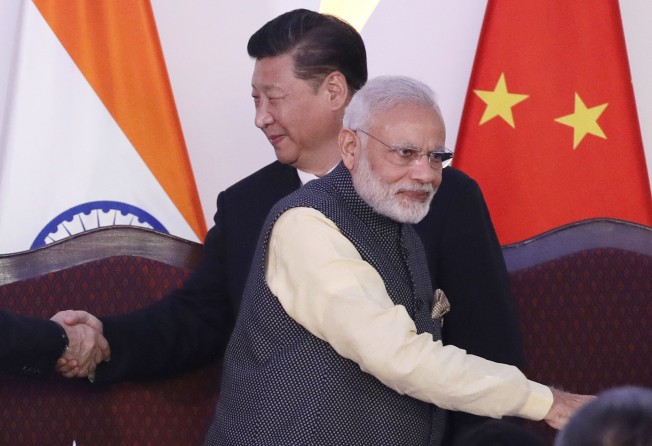
01:31
China shares video of deadly 2020 border clash with Indian troops in Galwan Valley

China has said it supports India’s chairmanship of the BRICS summit this year, signalling goodwill after the two countries agreed to cool tensions in their months-long border stand-off.
The neighbours last week pledged to disengage troops from Pangong Tso, a bitterly contested lake area in the western Himalayas, after nine tense months of what has been the worst military confrontation in decades between the nuclear-armed nations.
The two militaries have begun a tenth round of talks aimed at agreeing on the next phase of disengagement.
As New Delhi assumes chairmanship of the annual summit of the BRICS grouping of emerging economies – which also includes Brazil, Russia and South Africa – Beijing’s attitude towards it and any opportunities for Chinese President Xi Jinping to meet Indian Prime Minister Narendra Modi one-on-one will be watched closely.

01:31
China shares video of deadly 2020 border clash with Indian troops in Galwan Valley
Asked about Xi’s possible attendance at the summit and whether the border tension would affect their multilateral cooperation, Chinese foreign ministry spokesman Wang Wenbin said BRICS had become an influential grouping and Beijing supported New Delhi’s efforts as host.
“China attaches great importance to the BRICS mechanism,” Wang said at a regular press conference on Monday. “The Chinese side supports the Indian side in hosting the meeting and is willing to work with India and other BRICS countries in expanding cooperation on economy, politics and people-to-people exchanges.”
India has yet to announce the exact dates of this year’s meeting and whether it can be held in person. Last year’s summit – in November, after the border conflict broke out in May – did not involve one-to-one meetings of leaders, having been held virtually because of the coronavirus pandemic.
Soon after the 73-day stand-off between Chinese and Indian troops on the Doklam plateau in 2017, Modi attended the BRICS summit hosted by Xi. The pair subsequently met in two informal summits, showing efforts to ease bilateral tensions and build personal chemistry.

06:15
Who has the upper hand in the India-China border dispute?
Long Xingchun, president of the Chengdu Institute of World Affairs, a think tank administered by China’s foreign ministry, said this year’s summit offers a chance for the neighbours to show that their relations are moving forward.
“If India is able to control the Covid-19 outbreak, it would be a good opportunity for India to host a physical meeting, which will offer a chance for diplomacy,” Long said.
“With the current trajectory, it’s likely that the border stand-off can be resolved in the coming months. Otherwise there won’t be a favourable atmosphere for [Xi’s] attendance at the BRICS summit. A favourable atmosphere is a key consideration in Chinese diplomacy.”
Observers have argued that the BRICS grouping may have lost its shine in recent years with China’s rise to superpower status, leaving the other four nations behind.
But after US President Joe Biden’s indications of the US’ re-engagement with multilateral platforms, seeking to use Western-led forums such as the Group of 7 to confront China, mechanisms such as BRICS remain key counterweight avenues for Beijing.
“BRICS is a collective effort to increase the bargaining power of developing countries in balancing the influence of the old industrialised nations and traditional world order,” Long said.
“China’s attitude towards BRICS and its policy towards India remain unchanged despite the recent conflicts.”